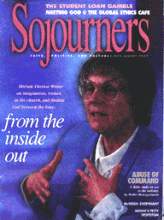In the decades under Israeli occupation, Palestinian civic leaders have developed a clear understanding of and commitment to human rights, freedom, and democracy. So its not surprising that as a Palestinian state emerges in the Gaza Strip and West Bank, the establishment of democratic institutions has been given the highest attention.
Its also not surprising that such efforts have met with powerful opposition. Unfortunately, the biggest obstacle to Palestinian democracy may well be the embryonic states founding father, Yasir Arafat.
The May 20 arrest of Palestinian-American journalist Daoud Kuttab was merely the latest example of Arafats autocratic impulses. With the Middle East peace process teetering on the edge, Arafatwho last year was overwhelmingly elected president of the newly established Palestinian Authorityhas increasingly acted more like a petty despot than head of a democratic state.
In doing so, Arafat has managed to squander a golden opportunity to move Palestine toward genuine autonomy and freedom. The world has increasingly seen Israeli Prime Minister Benjamin Netanyahus administration as doing everything possible to scuttle the peace processincluding pushing settlements and expansion at all costs, rampant violations of Palestinian human rights by Israeli security forces, and generally undercutting the Oslo accords. The situation was ripe for a nonviolent movement, building on the intifada, that would take the final steps toward a peaceful, independent Palestinian nation. But the Palestinian Nelson Mandela has not emergedor, more accurately, not been allowed to emerge by Arafat and his strong-armed rule.
Read the Full Article
